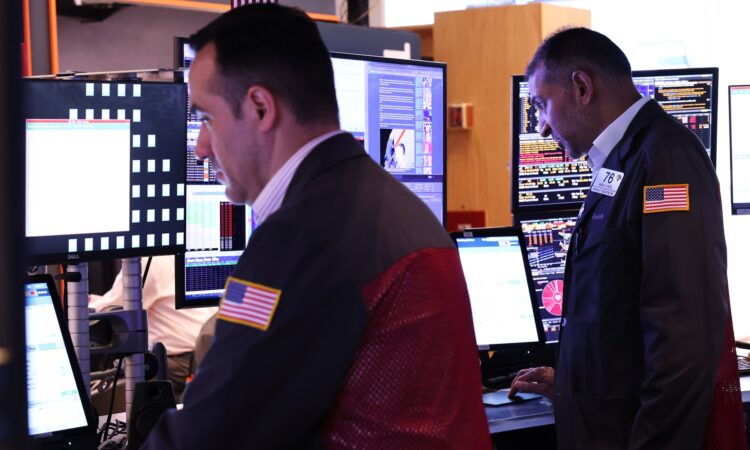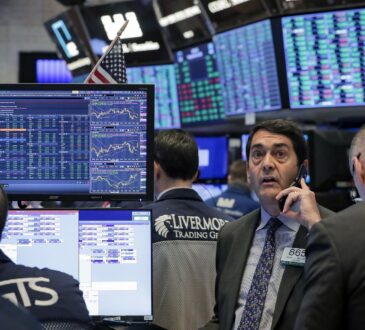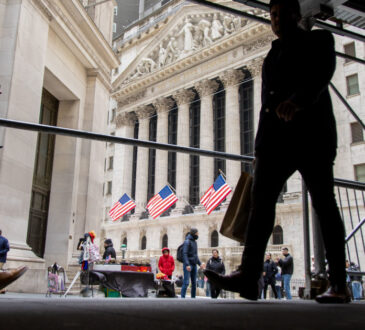
Traders work on the floor of the New York Stock Exchange during afternoon trading on August 02, 2024 in New York City.
Michael M. Santiago | Getty Images
U.S. stock futures tumbled Monday as part of a global market sell-off centered around U.S. recession fears. Japan’s Nikkei 225 plunged 12% in its worst day since the 1987 Black Monday crash for Wall Street.
Here’s where U.S. stock market futures stand at the moment:
Fears of a U.S. recession were the main culprit for the global market meltdown after Friday’s disappointing July jobs report. Investors are also concerned that the Federal Reserve is behind in cutting interest rates to bolster an economic slowdown, with the central bank choosing instead to keep rates at the highest in two decades last week.

Dow Jones futures, 1-day
There’s also an unwinding of the once-hot artificial intelligence trade going on. Tech shares were among the worst performers in early trading Monday:
In Asia overnight, Japan stocks confirmed a bear market as Asia-Pacific investors had their first chance to react to the sour jobs figures in the U.S. from Friday. The 12.4% loss on the Nikkei — which closed at 31,458.42 — was the worst day for the index since the “Black Monday” of 1987 hit Wall Street. The loss of 4,451.28 points on the index was also the largest in terms of points in its entire history. The Dow lost more than 22% in a single day on Black Monday.
Other global markets were also severely impacted:
- U.S. Treasury yields tumbled on the recession fears and as investors flooded into bonds for a global safe haven. Bond prices move inversely to yields. The benchmark 10-year note on Friday yielded 3.76%, down from where it was one week previously at 4.20% and the lowest in a year.
- Bitcoin tumbled from nearly $62,000 Friday to around $52,000 on Monday.
- Europe’s Stoxx 600 was off by 2.6% in London.
- The CBOE Volatility Index shot higher to above 53, its highest since the early days of the pandemic in 2020.
There is also chatter about the unwind of yen “carry trade” adding fuel to the global market decline after the Bank of Japan raised interest rates last week. The yen is rising in value vs. the U.S. dollar, ending a practice of traders borrowing in the cheap currency to buy other global assets.
“It’s painful,” said Victoria Greene, chief investment officer at G Squared Private Wealth on CNBC’s “Worldwide Exchange.” “I think there’s a lot being absorbed that happened over the weekend between Berkshire cutting Apple…you had the Japan sell-off… you have the yen spike and the end of that carry trade…You have a lot of bad news getting priced in.”
“This is a pullback, a correction,” she added. “We’ll probably hit oversold at some point…rather quickly at these levels.”
On Friday, the Nasdaq capped a third straight week of losses, bringing the tech-heavy index down more than 10% from a record set last month. The S&P 500 also posted a third straight losing week, down 2% for the week. Even the Dow Jones Industrial Average, which had been outperforming, snapped a four-week win streak, falling 2%. The S&P 500 went into Monday’s session down 5.7% from its recent all-time high.
Economic data due out Monday include the July ISM Services PMI, a measure of the performance of U.S. services companies that’s set to show a rise to 50.9, up from 48.8 previously.




